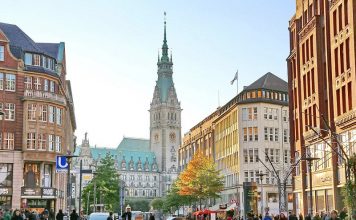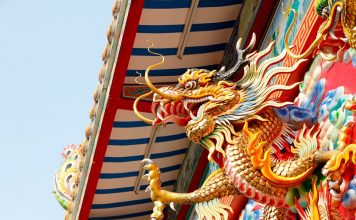In the minds of most people travel is associated with relaxation, new experiences, pleasure. It firmly entered the life of a man with his natural desire to discover unknown lands, monuments of nature, history and culture, customs and traditions of different nations.
Every modern person dreams of traveling, and especially students, as these are young people who seek to explore the world, gain new knowledge, develop themselves, etc. Of course, the educational load on students is quite large today, so they do not always have time to travel. But, it is important to note here that at any time they can turn to professional paper writers such as AdvancedWriters and get reliable essay writing support in the fulfillment of certain assignments. Professionals allow students to get extra time for travel and guarantee high-quality writing of academic papers.
In this article, we will tell you about the importance of travel for a modern person, consider travel as a source of knowledge and entertainment.
The Importance of Travel for a Modern Person
People have always traveled to discover new lands, meet their neighbors, find treasures, test their strength, gain previously unknown knowledge and, finally, become different from what they were before they left their native threshold. But why do some go on trips, sometimes dangerous and difficult, while others stay at home? Why, for the sake of what, for what purpose do the first ones risk their lives, run away from the borders of a comfortable and understandable world? What is their motivation?
The answers to these and other questions can be found here:
- Travel is a phenomenon created by modern civilization. Having emerged in the XIX century as a system of mass organized trips, hikes, visits, it gained a global scale. Achieving mature forms of travel has created opportunities for its theoretical, philosophical reflection;
- The main purpose of traveling is self-knowledge and self-improvement. It becomes educational in the case when this goal is realized and it is transformed from a simple movement in space into a focused process of cognizing the world;
- Travel is not only a highly profitable sector of the global economy; for many people, it continues to be associated with romance hikes in the mountains, forests, rivers. Travel has always been and remains a powerful lever in educating the younger generation, formation of the worldview of young people, ensuring a healthy lifestyle;
- During travels, people receive new knowledge: they study the culture of one or another people, their language, their traditions. All this allows a modern person to develop both spiritually and morally. Moreover, a person is removed from his daily affairs of duties, he relaxes, has fun and enjoys what he sees and hears. All this positively affects the psychological state, causes pleasant emotions in a person;
- Travel occupies an important place in culture. Apparently, in all ages, people embarked on a journey with a wide variety of goals, and then in one form or another talked about what they saw, learned and experienced. Humanity in its history has accumulated an incredible number of such stories — from travel notes to novels. In addition, the motive for overcoming the path can be found in a variety of mythological, poetic and religious traditions, as well as examples of the use of travel as an allegory in philosophy, theology, literature, and art. The universality of travel as a phenomenon and the variety of cultural meanings associated with it makes it an attractive and promising topic for discussion among the humanities.
Functions of Traveling
Taking into account all of the above, it is possible to distinguish the main functions of traveling:
- Educational. Each trip gives the person a certain experience of patience overcoming inconveniences, fosters love and respect for people, to the native land, teaches to respect traditions, beliefs, the worldview of other peoples;
- Developmental. There is a development of cognitive activity, formation of world outlook, ensuring the possibility of adequate self-knowledge;
- Cognitive. It is a function that is about knowing the world, accumulating experience, forming the outlook of each traveler. Travelers gain knowledge of geographical, historical, environmental and other environmental features. They learn to preserve them for future generations. All this contributes to the development of science, culture, art and other fields of human society;
- Socializing. There is mastering the skills of interaction with other people, the rules of behavior in the team;
- Recreational. Travel helps to improve the physical and mental health of researchers, gives new impressions.
Thus, all of the above allows us to conclude that travel promotes the development of the soul, approaching the truth, a person is in search of new knowledge, learns new things, and gets a new experience. Traveling is an excellent form of education, powerful impulse for creativity, new ideas, new opportunities revive inspiration. Therefore, we can say that travel is a real source of knowledge and pleasure.
















